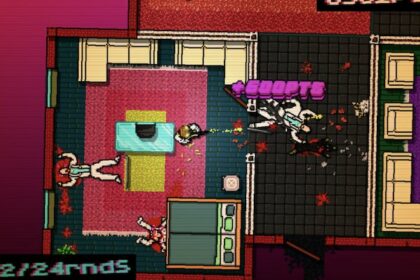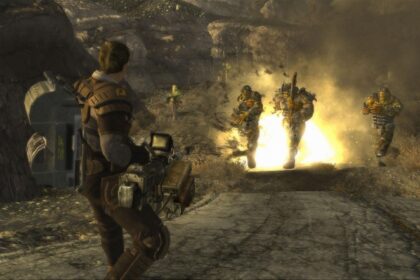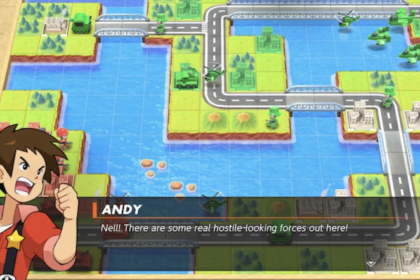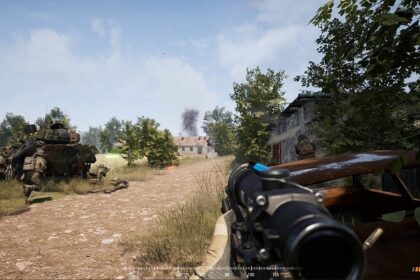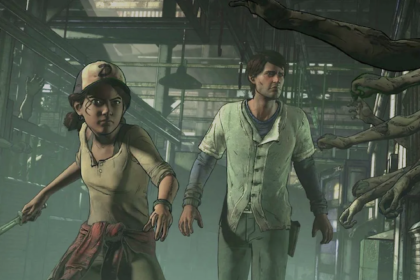When it burst onto the RPG scene in 2018, Kingdom Come: Deliverance was a refreshing sight. Unlike most RPGs of the time, it came with no mages, enchanted swords, or dragons. Throughout the entirety of Kingdom Come, you’ll never search for a prophecy or kill a demon.
Instead of a fantasy land like Hyrule, Kingdom Come: Deliverance is set in medieval Germany. The fact that it represented a fairly realistic showcase of medieval life instead of going for fantasy tropes definitely makes it one of the most original RPGs out there.
If you’re looking for games to play after you’ve had your fill of Kingdom Come, don’t worry, we’ve got a few suggestions on games like KCD that you’re sure to enjoy. Here’s 6 games like Kingdom Come: Deliverance, covering a few different genres throughout the list.
GreedFall
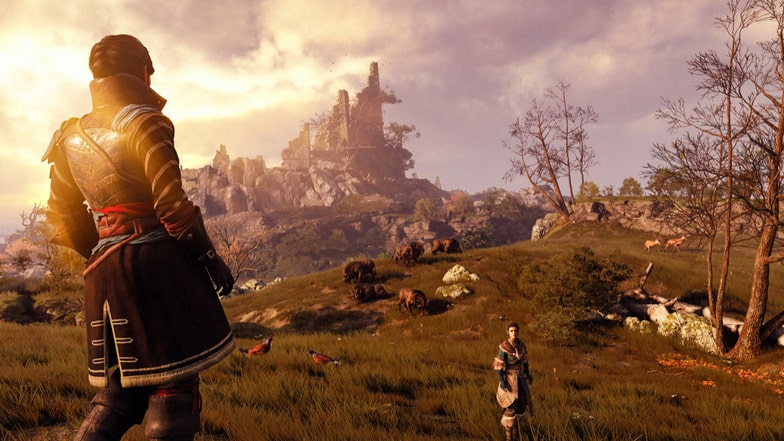
While GreedFall doesn’t quite match the aesthetic and theming of Kingdom Come: Deliverance, it does offer a similarly immersive and rich open-world RPG experience that KCD fans are sure to love. It’s an RPG title focused on exploration, but it has satisfying combat and some brilliant story elements as well.
Putting the player in the shoes of an explorer on an uncharted island, GreedFall focuses on providing a rich narrative through lots of different quest types and a world that feels truly alive. There’s a real sense of character progression in this game.
GreedFall doesn’t have the medieval theming that Kingdom Come: Deliverance does, but it shares a lot of the same game elements and features. The story is lively and non-linear, the aesthetic is intricate, the combat is satisfying, and your actions have a real impact on the game world around you.
If you’re open to stepping outside of the world of medieval games and venturing into a new subgenere of open-world RPGs, GreedFall is going to be one of the best games like Kingdom Come: Deliverance for you to check out and play today.
Mordhau
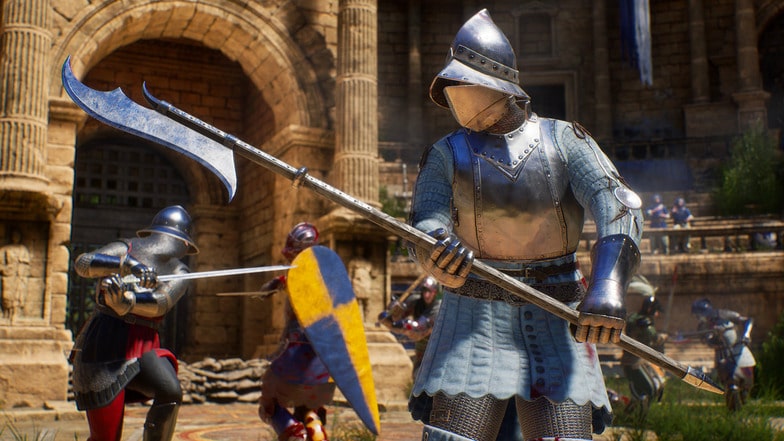
One of the things that made Kingdom Come unique was its difficult and high-stakes combat, which gave drama and significance to encounters with even the weakest opponents.
That’s something that players appreciate about Mordhau as well. This medieval first-person combat game is, unlike Kingdom Come, a thoroughly multiplayer affair, but the combat bears plenty of similarities.
Most other games that give you a sword and shield make you feel like a fearless hero that’s mowing down battalions of foes, but Mordhau goes in the opposite direction. After your first few rounds online, you’ll be more terrified than joyful at the prospect of fighting someone.
That’s because Mordhau isn’t afraid of setting a high learning curve. Among the melee multiplayer games we’ve seen in the past couple of years, it’s definitely the most difficult one to get into.
If you don’t have the patience necessary to master its twitch-based, complex combat system; it’s probably not a great choice. On the other hand, when you actually become good and have your first hot streak, there aren’t many games where you’ll feel like a bigger badass.
As for the gameplay itself, the premise is quite simple. The default gameplay mode is Frontline, where you choose one of the nine available classes, though you can also design your own class, and enter a 64-player fray, on the side of one of the two 32-player teams.
Most of the maps are objective-based, and they’re designed based on actual medieval battlefields. All in all, it’s fun, but prepare to die a lot before you gain some experience. The theming, aesthetic, and combat make this an ideal game like Kingdom Come: Deliverance for players who don’t mind hopping into a new play style.
The Elder Scrolls V: Skyrim
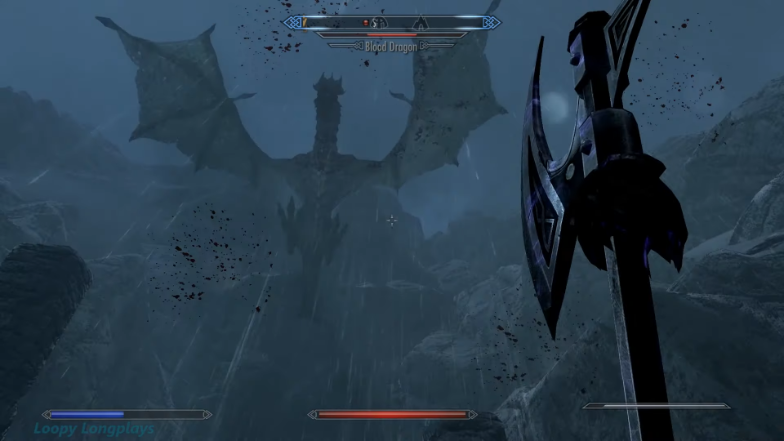
Today, it’s easy to dismiss Skyrim as an obvious, mainstream pick among first-person RPGs. And yes, Kingdom Come: Deliverance has a more complex combat system, a more realistic setting, and (at times) more fleshed-out characters.
But that’s like saying Superman is a boring superhero because his powers aren’t particularly original. That’s only natural because he was the first. And just like Superman was a prototype for all other superheroes, The Elder Scrolls series is the granddaddy of first-person RPGs.
From Daggerfall and Morrowind to 2011’s Skyrim, TES set forth many of the design standards and ideas that we take for granted today when it comes to first-person games. And even though it’s much older title, Skyrim is still relevant. It’s one of the best games like Kingdom Come: Deliverance that veers into the zones of fantasy.
Its revolutionary combat system was a vast improvement on its excellent, but clunkier predecessors, and its frozen land ravaged by civil war is still one of gaming’s most iconic settings.
And if you’ve played Skyrim ages ago and you’re worried that it will look and feel dated, don’t be. Bethesda has released an Anniversary Edition, and the sprawling modding community is still as active as ever.
Today, Skyrim is its most technologically advanced, polished, and biggest self. It’s one of the most impressive first person RPGs on the market, and ideal for Kingdom Come: Deliverance fans to check out as well.
Mount & Blade II: Bannerlord
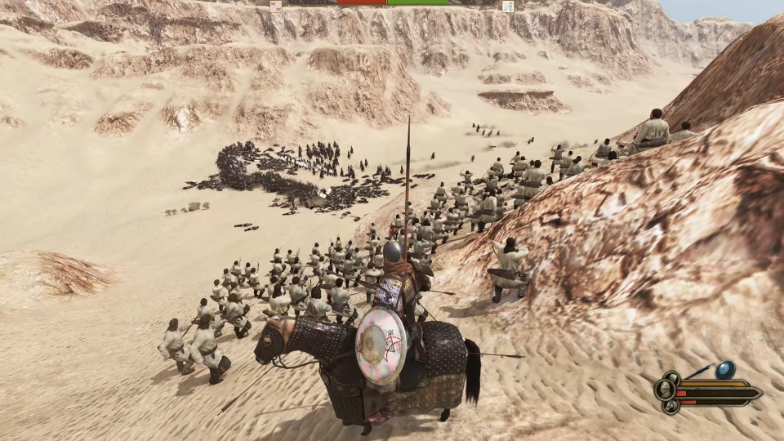
Ah, Mount & Blade. No list of medieval games would be quite complete without it, especially when we’re talking about realistic, no-fantasy medieval settings. And although Bannerlord does not take place in the real world, make no mistake; this isn’t your goblin-killing, fireball-casting RPG.
The first Mount & Blade was an indie gem made by a Turkish studio called Taleworlds. As with most genius games, the premise was relatively simple. What if you took the basic gameplay beats of Sid Meier’s Pirates, and transplanted it to a medieval, land-bound setting?
The result was a wonky game that still managed to become an instant hit.
Mount & Blade II: Bannerlord is an RPG that thrusts you upon a fictional medieval world, and basically, lets you do as you please. You can become a mercenary, trader, legendary warrior, bandit, or lord. It’s got the non-linear story aspect that most games like Kingdom Come: Deliverance promise, and it’s a hell of a lot of fun.
The gist of the game focuses on your ability to lead large parties of soldiers, that can eventually grow to armies, and then test their merits in combat on procedurally generated maps. You even get to participate in the combat yourself as their leader, which is made even more awesome by the fact that every single soldier has individual simulations.
When two 300-soldier armies clash, it results in some immense melee battles. And when you couple that with a living world, filled with cities, villages, and castles (and the wars which see them change hands in game) it makes this game a particularly enticing package.
Medieval Dynasty
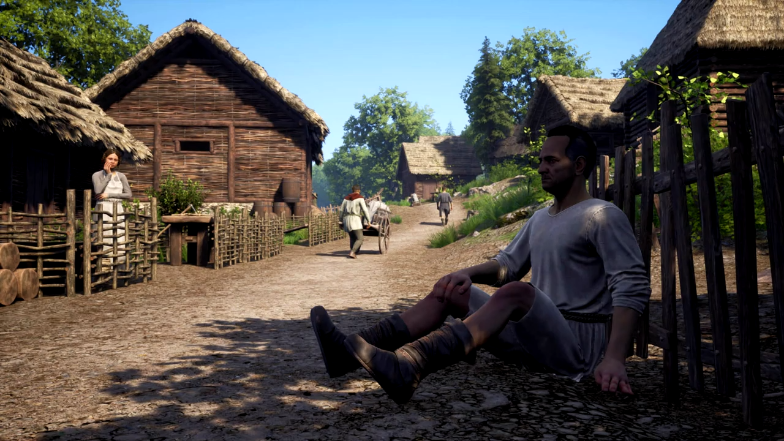
For a great many people, the best part of Kingdom Come: Deliverance was its reasonably realistic medieval world. And if you count yourself among them, Medieval Dynasty will come as an extremely welcome addition to your gaming library.
While it has a reasonable amount of RPG elements, at its heart, Medieval Dynasty is a survival game. And it’s also a first-person city-builder, marrying the best of the three genres. In practice, this means you’ll have to build, survive, hunt, and lead people in the harsh medieval setting.
In the process, you’ll do more than just survive; you’ll create your very own dynasty and ensure its longevity and prosperity. The basic gameplay loop is one harbored by many of the non-blocky Minecraft successors of the day. You gather your basic construction materials in the wilderness, as well as food and water.
However, after constructing your own dwelling, you can start working on your very own village and the denizens your construction will attract. Once they arrive, you have to make sure there’s food and other supplies for them as well, along with basic services, a shelter, and everything else a village needs to thrive.
It’s worth pointing out that the survival and village-building aspects of Medieval Dynasty are its high points. There’s a rudimental story, but it’s nothing to write home about and the RPG mechanics can be lackluster in places.
Still, if starting your own medieval community and seeing it grow over time sounds fun, this is a great survival RPG for fans of gams like Kingdom Come: Deliverance to check out. It’s got a similar theme and lively world to KCD but a newer style of play, and it’s one of the best survival games on the PS5 as well.
The Witcher III: Wild Hunt
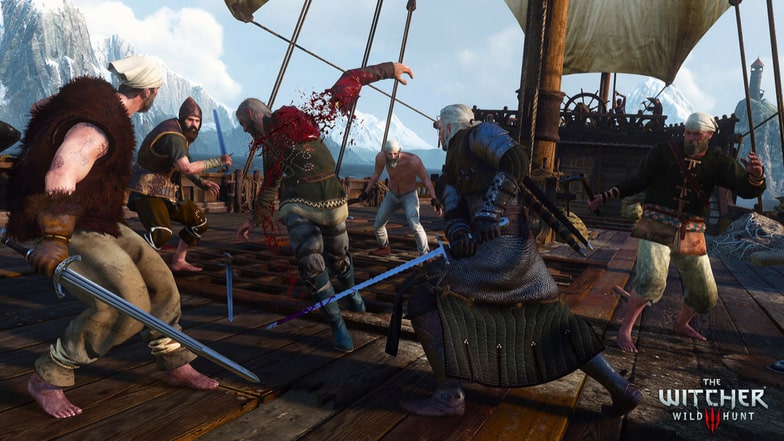
Does the Witcher series really need any introduction at this point? It’s one of the biggest RPG series in the world, and if you haven’t played it, the Witcher III’s low-fantasy medieval setting is your perfect next stop after finishing Kingdom Come: Deliverance.
At the start of the third Witcher title, a war is ravaging the Northern Realms. And you, as the famous White Wolf of Rivia, embark on the greatest quest of your life: finding Ciri, the Child of Prophecy and your former ward, who could alter the fate of the world.
In practice, this means freely exploring the massive world of this Witcher title, dealing with monsters, and solving quests in classic RPG fashion. However, the familiar tropes of the genre become better thanks to the game’s superb design. Even after a hundred hours with this truly massive game, the combat system doesn’t become any more boring or simple.
Also, the cities and villages of the Witcher 3 put anything other open-world games have created to absolute shame. Forget about the two dozen NPCs that would constitute a “city” in a title like Skyrim. In Witcher 3, these are actual living and breathing medieval cities with hundreds and hundreds of people, locations, and smaller quests.
This is a game similar to Kingdom Come: Deliverance in places, but it still offers just enough new elements to make it a standalone gem too. This is one of the best open-world games on the PS5 and it’s an absolute must-play for KCD fans.

